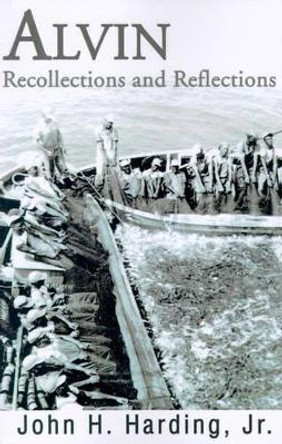Description
About the Author
John Joseph Horgan (1881-1967) was a Cork-born solicitor, coroner, writer, and public figure for over half a century. Professor John S. Horgan (born 26 October 1940) is John J. Horgan's grandson. He is currently the Press Ombudsman. An author and former Labour Party politician who served from 1969 to 1981 as a senator and then as a TD. He was Professor of Journalism at Dublin City University before taking up the ombudsman post in 2007.
Reviews
"University College Dublin Press has now published over thirty 'Classics of Irish History'. These contemporary accounts by well known personalities of historical events and attitudes have an immediacy that conventional histories do not have. Introductions by modern historians provide additional historical background and, with hindsight, objectivity. Books Ireland Nov 2007 "Scholars of nineteenth-century Irish and Irish-American politics should reacquaint themselves with these classics, part of a long running and immensely useful series from University College Dublin Press." Irish Literary Supplement Fall 2008 "this little-known account of the demise of the Irish Parliamentary Party first appeared in 1949 - [The author] himself was a party activist and the book's strength as a study of this crucial transitional period in Irish history is that Horgan writes as an insider who was not just an observer but a participant in some of the events he describes - The biological introduction by his grandson sheds light on an intelligent and principled man who in many ways was a maverick in the independent state and ahead of his times on many key issues." Books Ireland September 2009 'John Horgan had many heroes, flawed and flawless, and a few villains. Personal reminiscences about them make this history particularly engaging. As a child he knew Parnell. His father was Parnell's election agent and Parnell was his best man at his wedding. In 1891 - after the split - Parnell stayed with them for the last time, and was primarily concerned with interviewing 'a rich Cork merchant of liberal views, in order to induce him to buy the Ponsonby estate and reinstate the evicted tenants'. On news of Parnell's death, his father broke down; he had never seen him cry before. - Eoin MacNeill, Douglas Hyde and Pearse were close to Horgan, then Cork vice-president of the Gaelic League. - It also brought him into contact with Roger Casement. - Horgan adds 'So poor Casement's strange, romantic, tortured spirit reached its apotheosis as one of the heroes of the rising he had vainly tried to prevent.' But Horgan's greatest and in the end tragic hero is Parnell's successor and fellow-Clongownian John Redmond. - For Horgan, the rising was abortive and unjustified. - He concludes that its ascendancy in our consciousness and Redmond's eclipse 'made partition inevitable - and furnished the necessary excuse for the civil war. The writer's grandson, also John Horgan, has written a biographical introduction to this edition. Horgan junior, now the press ombudsman, has had a career trajectory which included progressive politician, biographer, journalist and academic; in short mirrored that of his grandfather.' Books Ireland December 2009 'reissued with illuminating new introductions as a part of the Classics of Irish History series published by UCD Press, one of the most admirable - endeavours in recent Irish publishing history. More than this, these texts were also all political interventions. Horgan's wider purpose was to bear witness to the integrity and largeness of vision of the men and women who made the Home Rule movement and the cultural richness and complexity of their world. Themes which reoccur throughout the book include the vitality of early twentieth-century Irish Catholic intellectual life and the central role played by Home Rulers in the language movement, industrial revivalism and other forms of political radicalism. While much of the appeal of Horgan's book stems from his evocative pen portraits, much of the purpose of his book is achieved through his extended biographical sketches, often presented as exemplary lives. By these means, Horgan sought to create an alternative nationalist pantheon to rival that inhabited by the men of 1916-21. Horgan's book is a fascinating idiosyncratic text. Unorthodox and iconoclastic, it paints a compelling picture of a pre-1918 Ireland in which political alignments and identities were more fluid than historical accounts of the period sometimes allow. But more than this, Parnell to Pearse must also be read as a commentary on Ireland's neutrality during World War II, the fledging state's greatest crisis since its formation - ' Irish Literary Supplement Fall 2010 'It is written in part to elucidate and explain Ireland to English readers. - It reflects also the trajectory of the Gladstonian Liberal-Nationalist union of hearts and the effort that involved in the education of the sympathetic English in the affairs of Ireland, and is the last Irish political publication to derive from that trajectory. It is also addressed to Irish posterity, particularly perhaps his own. The republication of Parnell to Pearse by University College Dublin Press is supplemented by a valuable and impressively researched biographical introduction by John Horgan, grandson and namesake of the author, which carries the story forward through the final half-century of the grandfather's life.' Dublin Review of Books May 2010
Book Information
ISBN 9781906359294
Author John Joseph Horgan
Format Paperback
Page Count 408
Imprint University College Dublin Press
Publisher University College Dublin Press





